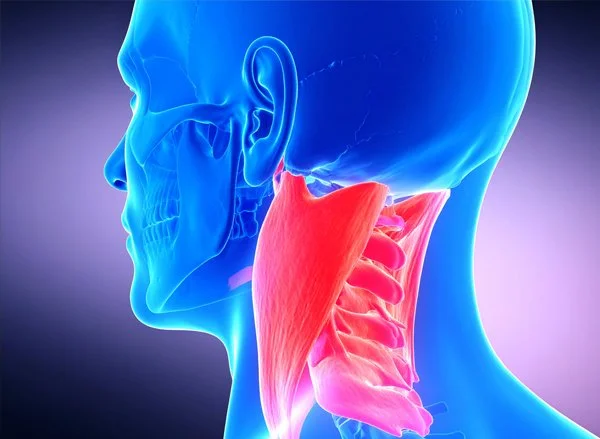Stress and Muscle Tension: How Physical Therapy Can Help You Find Relief
In today’s fast-paced world, stress has become an almost constant companion for many of us. Whether it’s work pressures, family demands, or personal challenges, stress can take a toll not only on your mind but also on your body.
One of the most common physical effects of stress is muscle tension — a feeling of tightness, stiffness, or discomfort that can interfere with your daily life.
Fortunately, physical therapy (PT) offers effective strategies to relieve muscle tension and help you regain comfort, mobility, and overall wellness.
Understanding the Stress–Muscle Tension Connection
When you experience stress, your body activates the “fight or flight” response. This natural reaction releases hormones like adrenaline and cortisol, which prepare your muscles for quick action by tensing them up. While this is helpful in short bursts, chronic stress means your muscles stay tight longer than they should, which can lead to pain, stiffness, and even injury.
Muscle tension from stress commonly affects areas like the neck, shoulders, upper back, and jaw. You might notice headaches, difficulty turning your head, or discomfort when sitting or standing for long periods. Over time, this ongoing tension can reduce your range of motion and impact your posture, creating a cycle that further perpetuates discomfort.
How Physical Therapy Addresses Stress-Related Muscle Tension
Physical therapists are movement experts who help patients reduce pain, improve function, and enhance quality of life. When it comes to stress-induced muscle tension, PT uses a holistic approach that includes:
1. Assessment of Movement and Posture
A physical therapist begins by evaluating your posture and movement patterns to identify areas of tightness and imbalance caused or worsened by stress. Poor posture — such as rounded shoulders or forward head position — often results from prolonged muscle tension and can strain joints and soft tissues.
Correcting these imbalances is a key step in reducing tension and preventing further discomfort.
2. Manual Therapy Techniques
Hands-on treatments such as massage, myofascial release, and trigger point therapy are commonly used to relieve tight muscles. These techniques help improve blood flow, decrease stiffness, and promote relaxation of the affected areas.
Manual therapy is personalized to your specific needs and can provide immediate relief from tension.
3. Therapeutic Exercise and Stretching
Our PTs design customized exercise programs focused on strengthening weak muscles and stretching tight ones. Targeted stretches can reduce muscle stiffness and improve flexibility, while strengthening exercises help support proper posture and movement habits.
Incorporating exercises that promote core stability, shoulder mobility, and neck flexibility can be particularly helpful for stress-related tension.
4. Education and Self-Care Strategies
A crucial part of physical therapy is teaching you how to manage tension on your own between sessions. This might include:
Techniques for proper ergonomics at work or at home to avoid prolonged strain
Simple stretching routines to relieve tight muscles throughout the day
Breathing exercises and relaxation techniques to reduce overall stress levels
Guidance on healthy sleep habits, since poor sleep can worsen muscle tension
Why Ignoring Muscle Tension Can Make Things Worse
It’s tempting to brush off muscle tension as a minor annoyance or an unavoidable part of a stressful life. But untreated tension can lead to more serious problems, including chronic pain conditions like tension headaches, temporomandibular joint (TMJ) disorders, or even muscle strains and spasms.
Muscle tension can also affect your mood and energy levels, creating a feedback loop that increases stress and tension further.
Seeking physical therapy early helps break this cycle before it becomes harder to treat.
When to See a Physical Therapist for Muscle Tension
If you’re experiencing ongoing muscle tightness or pain that doesn’t improve with rest or over-the-counter remedies, it’s time to consider professional help. Physical therapy is especially recommended if you notice:
Persistent neck, shoulder, or back pain
Limited range of motion or stiffness that affects daily activities
Frequent tension headaches or jaw pain
Poor posture or difficulty sitting/standing comfortably
Muscle spasms or recurring discomfort in the same area
Your Path to Relaxation and Recovery
Physical therapy offers more than just temporary relief — it equips you with tools and knowledge to manage stress and muscle tension long term. By addressing the root causes of your symptoms and improving your movement patterns, PT helps you feel better, move more easily, and live more comfortably.
If stress and muscle tension are affecting your quality of life, don’t wait. Schedule an evaluation with a licensed physical therapist who can tailor a treatment plan just for you.
Contact Aim
If you have a question about our physical therapy, call us, and we'll provide you with our professional opinion. We are ready to support you during your healing journey.
Call or Text us today: (310) 937-2323

